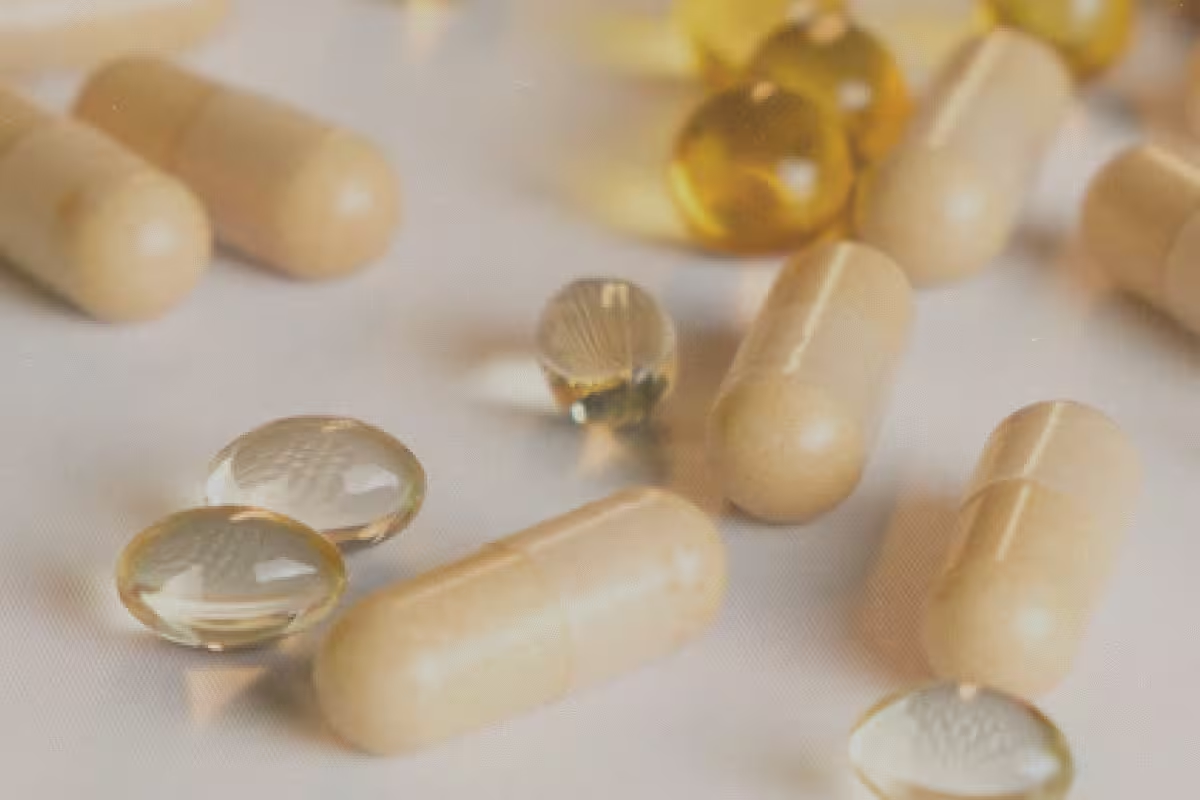

Why Sex Throws off Your PH Balance (& How to Fix It)
Discover how sexual activity can cause your pH balance to be off after sex, affecting your vaginal microbiome and increasing the risk of infections.
Words by Olivia Cassano
Scientifically edited by Dr. Krystal Thomas-White, PhD
Medically reviewed by Dr. Sabrina Sahni, MD NCMP
If you’re sexually active, you’re probably aware of the risks associated with unprotected sex, like sexually transmitted infections (STIs) or unwanted pregnancy. What your sex ed probably didn’t warn you about, though, is how sex can also affect your vaginal microbiome and increase your risk of yeast infections, bacterial vaginosis (BV), and urinary tract infections (UTIs).
While orgasms may be a welcome outcome of sex, a vaginal infection definitely isn’t. If you’ve ever noticed an unusual smell or burning sensation between your legs after having sex, you’re not alone. Sex is a very real trigger for infections and we hear this concern from members of the Evvy community all the time.
Nothing kills the mood (or your confidence) quite like a vaginal infection. If you find yourself always reaching for some post-coital Monistat or boric acid, keep reading to learn how and why sexual activity can affect your vaginal pH.
Why is my pH balance off after sex?
Sexual activity, particularly unprotected penetrative sex, is a key risk factor for vaginal infections such as bacterial vaginosis, yeast infections, and urinary tract infections. Maintaining a normal vaginal pH, which is mildly acidic (between 3.8 and 4.5), is crucial for overall vaginal health and preventing these infections.
Below are some of the ways sex can throw off your pH and make vaginal infections more likely.
1. During sex, disruptive microbes can transfer from one person to another
To start with the obvious, the mixing of microbiomes (both oral and genital) can introduce new pathogens into your vaginal microbiome, disrupting the balance of the vaginal environment.
Having new or multiple sexual partners is one of the biggest risk factors for bacterial vaginosis. Women and people with vaginas in same-sex relationships can also pass bacterial vaginosis to their partners. Research shows that women who have sex with other women are significantly more likely to have bacterial vaginosis compared to women who only have sex with men.
Some studies also show that although men can’t get BV, they can be carriers of the bacteria and pass it on to people with vaginas during intercourse.
2. Bacteria can easily move from one part of the body to another
Thrusting and friction during sex can also make it easier for fecal bacteria like E.coli to travel from the anus to the urethra, which can result in a urinary tract infection.
People with vaginas also have a shorter urethra than those with penises, which makes it easier for pathogens and bad bacteria to enter the urinary tract. Having vaginal sex immediately after anal sex is also associated with a higher risk of bacterial vaginosis.
3. Semen can disrupt the microbiome
Introducing semen into the vaginal microbiome can also increase your risk for infections in two ways.
First, the alkaline nature of semen's pH (ranging from 7.2 to 8.0) can impact your vaginal pH (a healthy vaginal pH ranges between 3.8-4.5). Having a higher pH can create a more favorable environment for harmful bacteria, potentially resulting in a yeast infection or bacterial vaginosis.
Second, semen contains its own set of bacteria that are introduced to the vaginal microbiome during unprotected penetrative sex (semen actually contains more bacteria than sperm!), including species that can cause vaginal infections.
Thankfully, condom use is an effective method for decreasing these risks. One study followed 871 women over three years and found that consistent condom use decreased the risk of bacterial vaginosis by 45%.
How to stop sperm from throwing off your pH balance
One of the simplest fixes is to always use a condom. They not only protect against STIs and pregnancy but also keep semen from disrupting your vaginal pH.
Avoiding douches or scented feminine hygiene products can also go a long way in maintaining balance. As tempting as it might be to wash your vagina after having unprotected sex, it won’t do much to prevent any infections — it might alter your pH even more and put you at higher risk of developing BV.

Recurrent symptoms? Get Evvy's at-home vaginal microbiome test, designed by leading OB-GYNs.
What if I smell after sex? Could it be bacterial vaginosis?
Contrary to popular (sexist) belief, it’s completely normal for your vagina to have an odor. No two vaginas smell the same, and it’s also common for that smell to fluctuate throughout your menstrual cycle.
But if you notice a drastic change in vaginal odor after having sex, it could be a sign of an imbalance in vaginal pH levels, which may lead to bacterial vaginosis or a sexually transmitted infection called trichomoniasis. Other symptoms to look out for include:
- Grey or green vaginal discharge that is watery or frothy
- Itching or burning in your vagina or vulva
- Discomfort when urinating
If you notice an unusual change in the way your vaginal discharge smells, whether or not it’s after having sex, see your healthcare provider.
Can condoms throw off your pH balance?
Condoms are actually one of the best ways to protect your vaginal pH. They act as a barrier that keeps semen (which is alkaline) from mixing with your vagina’s naturally acidic environment. This helps reduce the risk of pH imbalances that can lead to infections like BV or yeast infections. So if you’re wondering whether condoms mess with your pH, the general answer is no — they’re more of a helper than a disruptor.
That said, not all condoms are created equal. Some flavored condoms or those with added lubricants, warming agents, or spermicides can be a bit irritating to the vaginal tissue. These extras may contain sugars, glycerin, or chemicals that can disrupt your pH or feed yeast, leading to itching, irritation, or even an infection. If you’ve ever felt uncomfortable after sex and used one of these types of condoms, that could be why.
To keep things balanced and irritation-free, look for plain, unflavored condoms without added chemicals or choose ones labeled as pH-friendly or gynecologist-approved. Your vagina has its own ecosystem, and keeping it happy often means keeping things simple.
How to balance pH after sex
Balancing your vaginal pH after sex is all about giving your body a little support while letting it do what it naturally does best. After sex, especially if semen was involved, it’s common for your pH to shift slightly since semen is more alkaline than your vagina’s usual acidic environment. Your vaginal microbiome usually takes care of re-balancing itself, but sometimes this shift can lead to irritation, unusual discharge, or even infections like BV or yeast.
One easy way to help restore balance is to gently rinse your vulva (the external area) with warm water — no soap or douching needed. Avoid using any scented products or harsh cleansers, as they can disrupt your pH balance even more. It’s also a good idea to pee after sex, which could help flush out any bacteria from the urethra and keep your urinary tract healthy.
If you’re prone to infections after sex, using condoms can really help by preventing semen from altering your pH in the first place. And of course, if you’re frequently feeling “off” after sex, it’s worth checking in with your doctor to rule out any underlying issues. If you've developed a vaginal infection after having sex, the most effective way to balance your pH is to treat it.
How to have a microbiome-friendly sex life for better vaginal health
You deserve to have a fun, healthy, and fulfilling sex life without the looming threat of a yeast infection or bacterial vaginosis ruining everything.
Several biological and lifestyle factors can affect the health of your microbiome, from your period to your sex practices to your birth control. Some people are also more prone to vaginal infections than others for no apparent reason.
But when it comes to sex, there are different steps you can take to maintain a healthy vaginal microbiome:
- Practice safe sex: Always use a barrier method like condoms and dental dams. If relevant, avoid letting semen sit in your vagina.
- Care for your toys: Wash (and dry!) your sex toys before and after each use.
- Don’t cross-contaminate! After anal play, make sure to change your condom or wash your sex toy before vaginal penetration.
- Get regular STI tests: Many sexually transmitted infections don’t cause symptoms, so you may have one and not know. Untreated STIs can cause health complications like pelvic inflammatory disease and infertility.
- Pee (or shower) after sex to help clear the urethra of pathogens: Admittedly, the jury’s out on whether this actually prevents infections, but it can’t hurt!
- Choose condoms and lube wisely: Avoid spermicides, fragrances, nitrosamines, benzocaines, parabens, and glycerin, all of which may impact the vaginal microbiome.
- Consider partner treatment: Given that partners may harbor the bacteria that can cause symptoms and lead to infection, it may be worthwhile for both parties to be treated. Talk to your doctor about if this may be a useful approach for you.
- Maintain a balanced vaginal pH: Proper hygiene practices, such as avoiding douches and using pH-balanced products, can help maintain a healthy vaginal pH and prevent infections.
And while the tips above serve as general guidance, an Evvy vaginal microbiome test can help you get specific. Introducing a new partner or type of sex doesn’t have to mean introducing vaginal dysbiosis, too. Intermittent testing allows you to track changes in your microbiome over time so you can be in control of your vaginal health!
FAQ
Why did sex throw off my vaginal pH balance?
Sexual activity (especially unprotected sex) can impact your vaginal pH balance in a few ways. The pH scale ranges from 0 to 14, with lower values being more acidic and higher values being more alkaline. The pH of semen is higher (more alkaline) than the natural acidity of the vagina, which can temporarily raise your vaginal pH after sex. This change could create a more hospitable environment for harmful bacteria, leading to possible infections like bacterial vaginosis or urinary tract infections. Additionally, sex (whether it’s with men or women) can introduce new bacteria into the vagina, upsetting the natural balance of good bacteria. The movement during sex can also irritate the vaginal tissues, making them more vulnerable to infections.
How do you know if your pH balance is off from sex?
Your vaginal pH value might be off after sex if you notice any unusual changes in your vaginal discharge, such as a different color, consistency, or odor (like a fishy smell or thicker discharge), or if you experience vaginal itching, irritation, or discomfort. Maintaining a healthy vaginal pH value is crucial for vaginal wellness, and sex can impact this balance.
How to prevent sperm from throwing off pH?
To prevent sperm from throwing off your vaginal pH, the easiest and most effective option is to use condoms. Since semen is alkaline and your vagina is naturally acidic, condoms help keep the two from mixing, protecting your pH balance and lowering the risk of irritation or infections like BV, yeast, and STIs.





